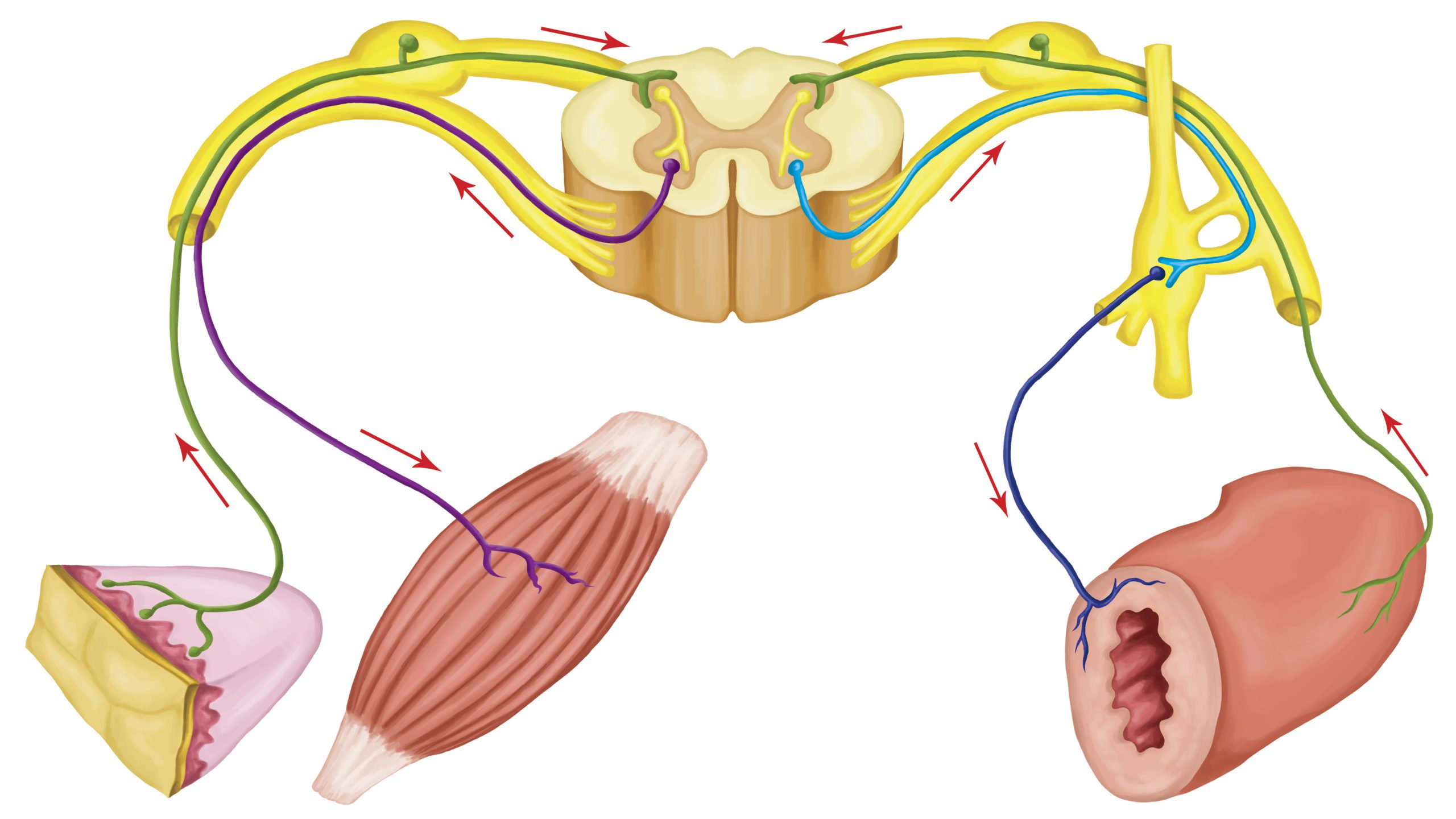Diabetes can cause various health conditions, one of which is diabetic peripheral neuropathy. It can affect different nerves in your body, including in organs and muscles. Nerves carry signals between the brain and other parts of the body controlling vital processes such as breathing and heartbeat, enabling vision and other sensory reception. Therefore, diabetic peripheral nerve damage can lead to serious problems in various aspects of human health.
Causes
Diabetes is a risk factor for developing peripheral neuropathy. With time, high blood sugar levels damage small blood vessels supplying nerves in the body. It prevents nerves from getting essential nutrients. As a result, the nerve fibers can get destroyed, which causes different problems, depending on the type of nerve affected. For example, damage of some nerves in the gastrointestinal tract organs can lead to digestion problems.
Sensory neuropathy
Sensory neuropathy affects the nerves that carry signals of various sensations, such as temperature, touching, or pain, from skin, bones, and muscles to the brain. It usually affects the nerves in the feet and the legs. Still, people can also develop sensory neuropathy in their arms and hands.
This condition poses a significant risk for patients, especially those who do not know about its presence. It can be dangerous because you may not notice small injuries, like cuts or blisters. If not treated, they may develop into infections or ulcers. That is why it is essential to do regular check-ups when you have diabetes.
Symptoms of sensory neuropathy can include:
- tingling and numbness;
- loss of ability to sense temperature changes;
- loss of ability to feel pain;
- loss of coordination;
- burning or shooting pains (can get worse at night time).
Autonomic neuropathy
This type of neuropathy affects nerves that carry messages to your organs and glands. They control autonomic processes in the organism, that is, processes that happen without our awareness. These include digestion, respiration, heartbeat, and many others.
Damage to these nerves can lead to problems with food moving through the digestive tract, which can cause bloating, constipation, or diarrhea. Bladder control can also be affected, leading to incontinence. Other issues like irregular heartbeats and inadequate sweating can also take place.
Motor neuropathy
Motor neuropathy affects nerves that control movement. It can lead to weakness and wasting of the muscles that receive messages from damaged nerves. Muscles weakness can cause falls or problems with simple tasks like fastening buttons. Muscle wasting is a loss of muscle tissue because of inactivity. It can also lead to muscle twitching and cramps.
Diabetic neuropathy treatment and prevention
There are many methods available for relieving the symptoms caused by neuropathy. For example, there are medications for nausea and vomiting, erectile dysfunction drugs, as well as painkillers for sensory neuropathy.
Keeping track of and managing blood sugar levels is an effective way to improve neuropathy symptoms or reduce the risks of disease development.
It is also recommended to have regular physical examinations, particularly feet examinations, if you have diabetes. Consult a health specialist for individual recommendations to improve your condition.
More details:
Prediabetes and measures of prophylaxis
Differences between type 1 and type 2 diabetes
Causes, mechanisms of the disease development and symptoms (Diabetes mellitus type 1)
Causes, mechanisms of the disease development and symptoms (Diabetes mellitus type 2)
















Leave a Reply
You must be logged in to post a comment.